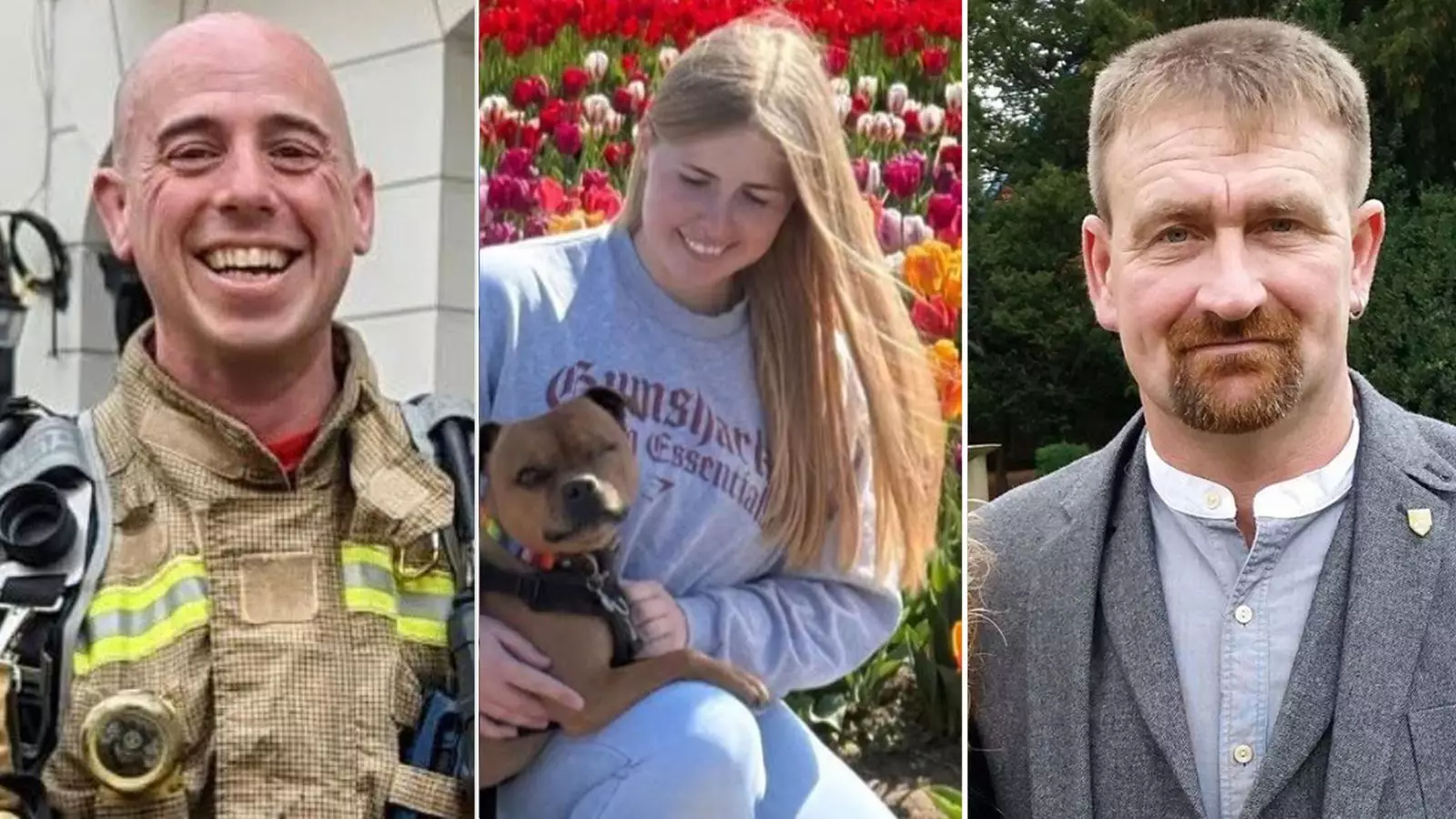The recent devastating fire in Oxfordshire that claimed the lives of two dedicated firefighters and a cherished business owner has sent shockwaves not only through the local community but also throughout the entire nation. The magnitude of such a tragedy is overwhelming, drawing forth emotions of sorrow, admiration, and a profound sense of loss. This incident at Bicester Motion, a site with roots in the town’s military history, has become a somber reminder of the risks that first responders take every day.
As people gather to pay tribute with flowers and heartfelt messages, the community’s response is both touching and telling. A child’s drawing adorned with fire engine stickers reading “Thank you hero fighters” encapsulates the innocence and admiration that the public holds for those who serve selflessly. Yet, it also raises the question: how many more sacrifices must occur before systemic issues in fire safety and emergency response are thoroughly revisited and addressed?
Community Bonding Amid Grief
Notably, Bicester Rugby Union Football Club has emerged as a rallying point for collective mourning, highlighting the dimensions of grief beyond just the immediate families affected. Chairman Chris Dabell’s statement – “We are just one family” – echoes the sentiment felt by many as tragedy unites us in unforeseen ways. Even as the town grapples with this heart-wrenching loss, the emphasis on community support is palpable. Memorial tributes from local residents further emphasize that the impact of this tragedy extends into every corner of Bicester.
Additionally, the poignant messages left under the Bicester Motion sign resonate deeply with the core values of humanity, begging the larger society to appreciate the often invisible sacrifices made by emergency workers. Messages echoing love and support for those who risk their lives to help others prompt serious reflection on societal values. Why do we wait for tragedy to acknowledge the heroism that exists among us?
The Cost of Heroism: A Call to Action
The tragic loss of Jennie Logan, Martyn Sadler, and David Chester skews the lens through which we must evaluate our appreciation for emergency workers. These individuals didn’t just lose their lives; they embodied a spirit of courage and selflessness that we should strive to emulate. As London Fire Commissioner Andy Roe noted, these are men and women who exemplify the essence of heroism.
Yet, this moment of reflection must transform into a call to action: there is a necessity for systemic change concerning workplace safety and emergency responses. It is not enough to express condolences; it is vital to ensure the safety and well-being of those on the frontline. We must question the adequacy of safety protocols and the support systems in place for emergency services. When will we prioritize the well-being of those who bravely confront danger on our behalf?
Responses to Grief: Beyond Flowers and Tributes
As the community shares grief, it cleverly manifests through fundraising efforts aimed at supporting the families directly affected by this tragedy. However, the discussions surrounding such support must expand; it’s an opportunity to engage the wider public in understanding the importance of supporting their local emergency services, not just during crises but as an ongoing effort.
The Thames Valley police’s request to redirect floral tributes to Garth Park highlights a practical solution amidst the chaos, but this response could signify a larger conversation about our public spaces. Memorials often become fleeting symbols of grief; they should also catalyze long-lasting change that promotes awareness and preparedness in a time of emergency. Is it enough to simply memorialize the dead, or should these actions galvanize us into action that reshapes our commitment to safety and structure within our communities?
Ultimately, the heartbreaking events that unfolded in Oxfordshire remind us of the fragile balance of life and the selflessness often displayed in the line of duty. It is time for reflection, action, and, above all, a commitment to honor their legacy by advocating for the safety and dignity of all those who serve.


Leave a Reply